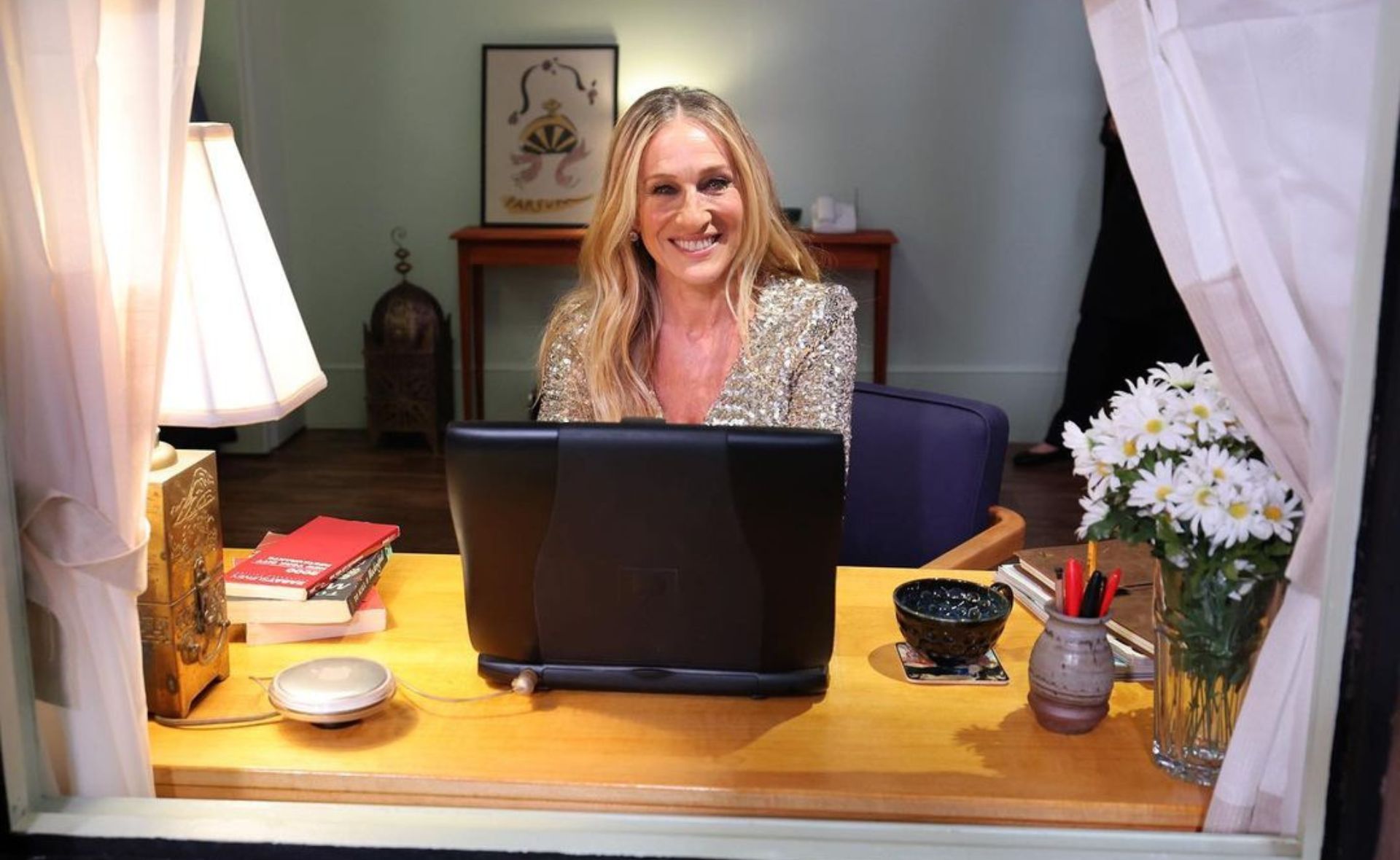Creating a financially-fit future starts with asking questions, and often they feel like hard questions. They involve making choices that may push you out of your comfort zone or require planning further into the future than you feel able to do right now.
However, the financially savvy leaders we spoke to at La Trobe Financial, who are committed to sharing their tips so that women can take control of their finances and achieve their goals, say that by asking yourself a series of questions—and formulating answers, sometimes with the help of an expert—may set you on the right track.
The more questions you answer, the deeper your understanding of how your financial tomorrow is impacted by your choices today. And ultimately, the more control you will have over your finances and the steps needed to achieve your goals.
Financially fit hurdle #1: SAVINGS
Children are given piggy banks, and saving pennies is a game. Fast forward into adulthood, and with so many demands on our bank balance, that little piggy bank is often the last mouth to be fed. However, when it comes to protecting yourself from financial vulnerability, this might be the most important step you take with your finances each month.
CONSIDER THIS:
Do you have savings?
Where are they right now?
Do you leverage compound interest?
Why is a savings buffer important?
Do you know your fixed expenses?
Do you consider your expenses in terms of “nice to haves” and “must spends”?
If you don’t save, do you know why?
CAT SAYS: Why is it important to save?
“It’s one of the key steps to achieving financial independence and realising your financial goals,” says Caterina Nesci, La Trobe Financial’s Director of International Partnerships and ESG.
Of course, if it was as simple as putting money in a separate account we’d all be flush. The issues are the money habits, relationships, expenses and life just getting in the way. For many, it starts with a simple goal. According to Caterina, a good place to start is aiming to have three months of your salary saved, in an account you solely control.
“It’s important for a woman to have control of her savings,” says Caterina.
For those who are yet to start, or need to re-establish a savings plan, the first thing is to understand your budget.
“Take a look at all of your outgoings over a few months. It can be surprising to see where the money goes. Look for savings wherever you can and understand how much income you can put towards them,” says Caterina, noting that over time, looking for opportunities to grow your savings will become second nature.
If money is tight, Caterina urges you to remember that from little things, big things grow.
“Think critically about what are necessities, and what are not. Review your bills and ensure you are on the best value arrangements. And consider giving up a few luxuries in the beginning, like less going out to dinner and buying take-away,” she says, noting that a good motivator is to treat yourself each month, when you meet a financial goal.
What’s more, this is not a “tomorrow” problem.
“Understanding the principles of compounding interest is important. The earlier you start saving, the sooner you achieve the benefit of compound interest—when the interest rate really turbo charges your savings—and the sooner you will have that an important buffer if anything goes wrong,” adds Caterina. “This is your safety net.”

Financially fit hurdle #2: PROPERTY
It’s impossible to escape the emotional pull of owning your own home and “living the dream”—and then the harsh realities of how challenging it is becoming to achieve home ownership these days. Still, with patience and a smart savings strategy, it may be possible to achieve our financial goals. So, dare to dream!
START TO CONSIDER:
Where does owning your own home sit within your financial goal?
Is it achievable right now?
If not, when?
What ratio is your mortgage to your salary?
Is property the best or only way to build wealth?
Should you put everything you have towards owning a property?
And if that isn’t an option, what else can you do?
Michelle SAYS: For many of us, the family home not only represents the biggest purchase we are likely to ever make, but it can also provide the greatest return on investment over time, according to Michelle Bannister, La Trobe Financial’s Senior Executive – Head of Distribution.
Still, saving for that deposit can feel out of reach, as can the pressure of maintaining the earnings required to meet those monthly mortgage repayments. For those still striving to save a deposit, the silver lining is that on the way, you may be exposed to other ways to invest and grow wealth.
“There are some great options that can help accelerate your deposit savings which could ultimately get you into the property market sooner,” says Michelle, who encourages first home buyers to check out the first home super saver (FHSS) scheme which allows you to save money for your first home inside your super fund. As for whether you should be all in on property, Michelle subscribes to the old adage of not putting all of your eggs in one basket.
“Diversification is critical to any investment strategy, so if I could share one piece of advice when investing, it would be to make sure your property isn’t the only way you are growing wealth and planning for the future.”
Financially fit hurdle #3: ALTERNATIVE INVESTING
When you hear the words “alternative investment,” do you feel your mental roller-doors going down? That may be because until fairly recently, investment vehicles like credit funds, private equity, cryptocurrencies, hedge funds and precious metals, to name a few, simply weren’t discussed or made accessible to anyone who wasn’t working in finance or having their wealth managed by others.
Everything is changing. Investing has become democratised in many ways. That means, with a little advice to grow your knowledge and confidence, you too can achieve your financial goals using these clever strategies.
GOOD QUESTIONS TO ASK:
Do you understand alternative investments?
Are you willing to seek help to understand them better?
Could this kind of investing help you achieve your goals?
Are you willing to step outside of your comfort zone to grow wealth?
How long can you invest your money?
What kind of risks are you willing to take to achieve your goals?
Do you believe you can build lasting wealth in this way?
Amanda SAYS: Anything that isn’t a traditional investment (think shares, bonds, cash or property) is considered an alternative investment, explains Amanda Lambert, National Distribution Manager at La Trobe Financial. Even better, with a little help, anyone could benefit from these investments to grow wealth. As for why they can help sure-up your financial future, here comes that word “diversify” again.
“Any kind of alternative investment broadens your investments and therefore may reduce risk in times of uncertainty,” says Amanda, noting that some alternative investments are intuitive and easy to understand.
“Consider credit funds (mortgages) and exchange funds for example—both are relatively simple concepts and intuitively ‘make sense’ once explained,” she says. “Others assets such as hedge funds and cryptocurrency can be complex and have a much higher risk profile.”
She stresses that it’s important to do your homework.
“You should never invest in anything you don’t fully understand,” she says, noting that you should ask a financial adviser who will be able to explain the product clearly, without all the jargon.

Read it now: FREE Money Talks magazine – How To Boost Your Money Mojo
Financially fit hurdle #4: RELATIONSHIPS
Coercive control has been a talking point for some time and defines anyone who has a partner controlling their finances as a way to restrict their freedom whether that’s through very tight budgets that barely cover expenses or preventing you from having a credit card.
It’s an impediment to a secure financial future and even for women who have a seemingly healthy financial relationship with their partner, research tells us that they don’t always understand their full financial position, or push to have an equal voice in the decision-making process when it comes to spending, saving and goals.
GOOD QUESTIONS TO ASK:
How much money do you have in savings?
What is your net-worth position?
Do you have full clarity of what you own (assets)?
Do you have a clear picture of everything you owe (or liabilities)?
Do you have access to all financial paperwork?
Do you have access to an account that is solely yours?
If you have sacrificed super to stay home, what is your retirement plan?
Is your opinion as valid on financial matters as your partners?
Lilian SAYS: If you can’t answer the above questions, this is a sign you may have handed over too much control in your relationship when it comes to finances, says Lilian Chin, Director Client Partnerships at La Trobe Financial. The important thing to remember is that while this is a red flag, and something you should rectify, you’re not alone.
Many women hand over managing the finances as they take on the role of raising children and managing all other elements of the home—which certainly feels economic in terms of time. The issue is that it makes you vulnerable to a shaky financial future. So how can you start having a more meaningful conversation with your partner about money?
“These conversations often bring out the best and worst in partners and can be awkward—but they are so important. I would suggest starting off with a casual conversation on your partner’s experience with money and their values,” says Lilian, noting that you can then use this understanding when delving into more specific questions.
“Set the scene and give your partner advance notice that you would like to have “the money talk.” Be open-minded and conscious of your emotions. Depending on their previous experiences, speaking about finances can be confronting,” says Lilian, noting that a healthy financial relationship means you can speak openly about your finances; you understand each other’s core financial values and you set up financial goals together.

Financially fit hurdle #5: TAX TIME 2022
Tax is something many people get behind on, and can become a source of stress and even shame, as when the years stack up. But with a little help, you can get back on track and find systems to help you stay on top of expenses plus, ensure you’re able to access the deductions available to you.
GOOD QUESTIONS TO ASK:
How much tax did you pay last financial year?
Do you keep track of your expenses?
Do you have someone who can keep you up-to-date on deductions?
Do you understand how your tax is calculated?
Are you fearful of lodging your tax return?
Do you feel like you’ve left it too long?
Are you willing ask for help?
Lilian SAYS: The motivation for staying on top of tax is a compelling one, says Lillian. “Having what we call a ‘tax strategy’ can potentially equate to significant tax savings for the year.” She says the best place to start is at the ATO website. The ATO organises all of its resources by entities (individuals/business etc). You can also access FAQs and the website is designed to provide all the information you need to self-serve. One idea might be to engage an accountant or tax agent:
“It can be challenging to keep track of all the changes to tax deductions and tax relief,” says Lilian, noting that even the most financially savvy people benefit from engaging an accountant to ensure their taxes are managed effectively. Also, it’s worth noting that Tax Time 2022 is different from other years:
“Many of us have had to work from home during the pandemic, so you may be entitled to claim deductions.”
For anyone intimidated by the process, Lilian urges you to simply get started or seek the assistance of a professional.
“The ATO is constantly simplifying the tax lodgement process. We now have access to information, tools and helplines.”
NOTE: The views expressed above are the author’s personal views. They have not considered your personal circumstances or financial position and should not be relied on in the absence of tailored advice. We encourage you to obtain professional advice.
Brought to you by La Trobe Financial.











